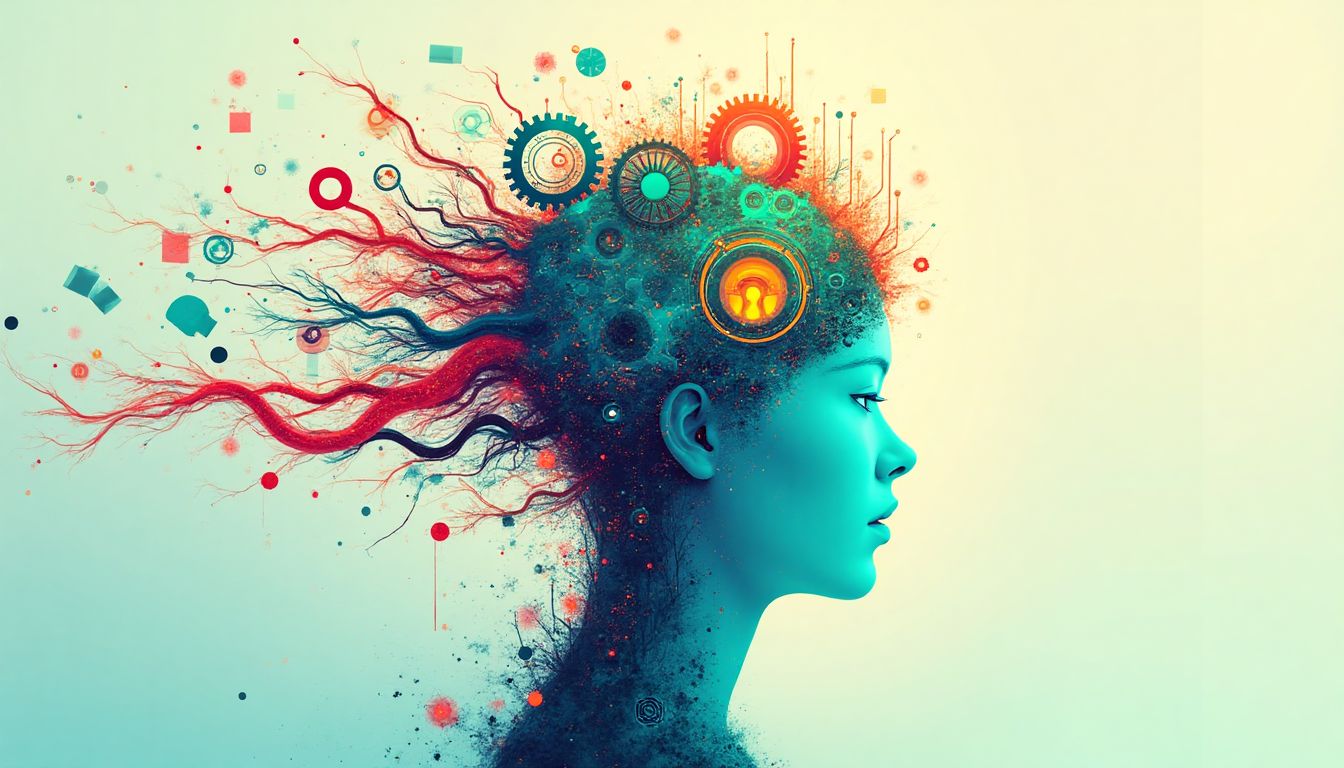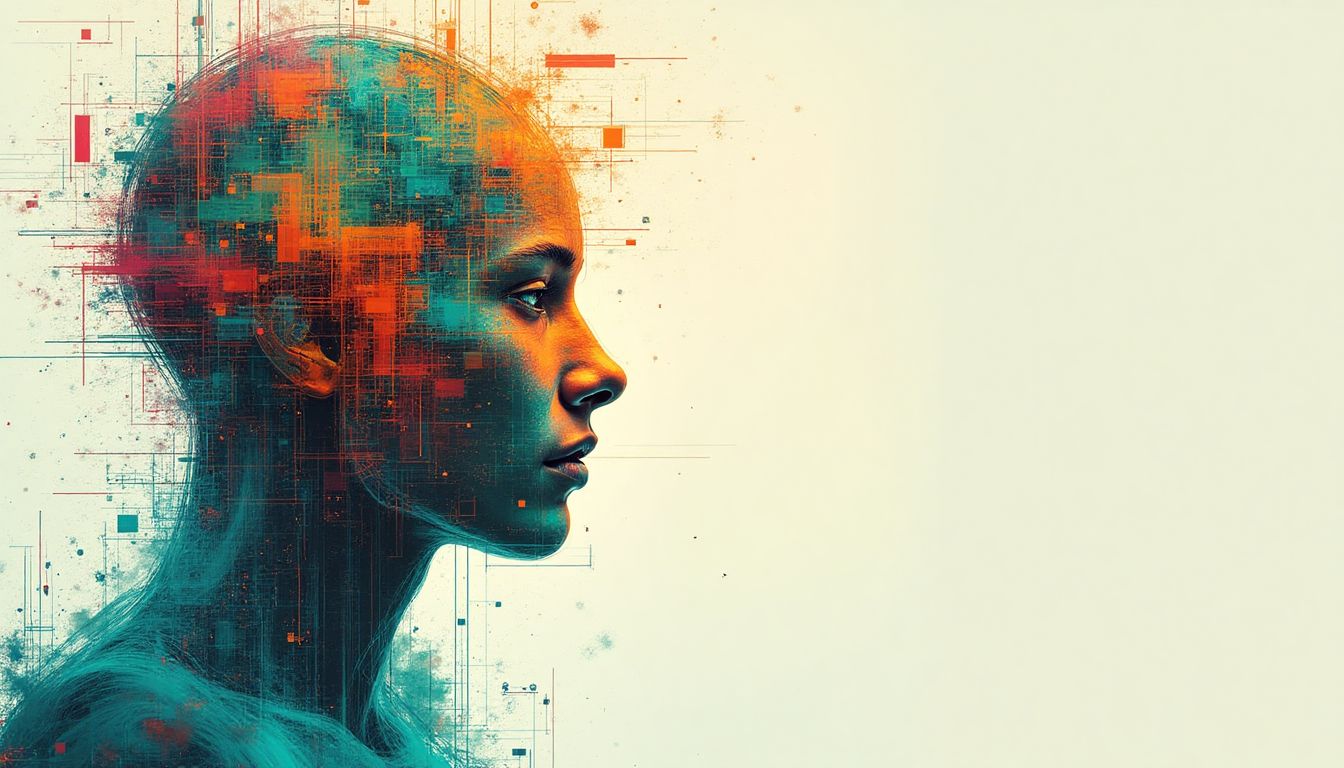Introduction: The Ethical Frontier of AI
Our virtues and our failings are inseparable, like force and matter. When they separate, man is no more. – Nikola Tesla
This profound observation by Nikola Tesla begs us to ponder the marriage of ethics with progress. Could the same apply to artificial intelligence? With AI poised to make decisions that affect our daily lives—from diagnosing illnesses to controlling vehicles—we stand at a crossroads. Here lies the crux: Should AI reflect our moral compass, or operate solely on logic and data? As philosopher Nick Bostrom and thinkers like Yuval Noah Harari have explored, endowing AI with moral values could transform ethical debates from theory to a daily necessity. The stakes are colossal. So, can machines become our moral kin, or are we attempting to play god with code?
The Quest for a Moral Framework in AI
Creating a moral framework for AI is like asking two cats to agree on which fish looks tastier–it's no easy task. We can search for inspiration in the scrolls of Kant or Aristotle, parsing through philosophies like utilitarianism (the greatest good for the greatest number), or deontology (duty over consequences). These philosophical blueprints, often debated by thinkers like Immanuel Kant and Jeremy Bentham, can guide our AI morality playbook.
The real hurdle lies in marrying philosophical theories with technological delivery without creating a digital Frankenstein. Bias remains the ghost that haunts the code. Just ask Google's AI ethics board or read Francesca Rossi's work on AI's ethical confines. Implementing a moral skeleton without it cracking under the weight of human diversity and error is a task of Herculean proportions.
Albert Einstein once said that the human spirit must surpass technology if it is to have a humanist future. But can ROS, the robust operating system steering robotic minds, distinguish between right and wrong? As we wrestle with these questions, it's crucial to draw from the wells of varied ethical perspectives to code a conscience into our silicon brethren.
The Role of Human Values in AI Programming
Artificial Intelligence is often seen as a blank canvas, a digital tabula rasa. But what colors should we paint it with? In this section, we explore how human values can trickle down like droplets of paint to color the canvas of AI programming, creating a masterpiece or a mess, all depending on the ethical brushstrokes we choose.
Defining Core Values
Core human values are those steadfast principles that many of us hold dear, regardless of our diverse backgrounds. Think of values like honesty, compassion, and fairness. But how do we download this sacred lineup into a machine brain? That's a tough one. We need to pinpoint these golden nuggets and carefully translate them into code. It's much like trying to input your Nana's secret brownie recipe into a computer. The problem? The program doesn't have a “dash of love” function... yet! Learn more about defining moral values.
Cultural Considerations
This is where it gets spicier than a Thai curry! Human values aren't one-size-fits-all, and when AI swims across cultural oceans, it can face a tidal wave of diversity. From East to West, values shift like tectonic plates, leading to earthquakes in AI ethics if we're not careful. Take Japan, for example. Japan’s culture places immense value on respect and harmony, while in the U.S.A. the scales might tip towards individuality and innovation. Thus, catering to this cultural smorgasbord poses intricate challenges, calling for adaptable and context-sensitive AI frameworks. Or as they say in AI, we need to “localize”! Explore cultural values and their significance.
Case Studies: A Look at AI's Ethical Dilemmas
Walking a mile in AI's silicon boots means confronting ethical dilemmas head-on. Here, we cast the spotlight on real-world scenarios where AI's decision-making muscles are tested, sometimes to the max.
Autonomous Vehicles
Imagine you’re cruising down the highway in your snazzy self-driving car, enjoying a good podcast about the complexities of crochet patterns when suddenly—BAM!—a dilemma crashes the party. Self-driving cars, like those from Tesla, have a lot on their dashboards, especially when it comes to crash decision-making algorithms. Should the car prioritize the lives of its passengers or the pedestrians? It's “Sophie’s Choice” on wheels! The algorithms need intricate moral calibration, making each ride a potential philosophical journey. Dive deeper into the ethical dilemmas of autonomous vehicles.
AI in Healthcare
What if your doctor was an AI? (And came with fewer lollipops post-check-up?) AI in healthcare, like IBM’s Watson Health, is on the rise, bringing with it some sticky moral conundrums. These systems help make significant life-and-death decisions, raising questions about accountability and trust. What if an AI misdiagnoses a patient? Who gets the blame—a computer geek or an overworked circuit? These scenarios challenge the Hippocratic Oath as interpreted by AIs, prompting society to ponder if AI should “first, do no harm,” or if they’ve already sworn allegiance to Skynet. Explore AI ethics in healthcare.
Implications for Society and Individual Autonomy
The rise of artificial intelligence is akin to the mythical opening of Pandora's box, presenting both endless possibilities and unforeseen challenges. Among these, the implications for society and individual autonomy are profound. By embedding AI with moral values—much like imbuing it with a digital conscience—we’re essentially shaping a new 'species' that interacts with humans daily.
Trust in Technology
Creating trust in AI is like building a bridge of hope that technology will not betray us. Moral programming in AI systems can be the pillars of this bridge. When AI seamlessly integrates into our work and personal lives, our trust grows. We expect AI to make choices that align with human ethics. For example, self-driving cars making ethical decisions in split seconds during a crisis rely on this trust.
Personal Autonomy and Accountability
Now, let's connect the dots between AI's decision-making and our personal autonomy. Imagine a world where your choices are constantly filtered through an AI lens. By endowing AI with moral values, we're sharing some of our decision-making responsibilities, which could influence our moral culpability. If an AI system makes a medical recommendation, who is accountable if the result is less than favorable? This raises complex questions about moral agency, pointing to the need for clearly defined boundaries and ethical guidelines for assigning accountability.
Consider this:
| AI Task | Impact on Autonomy |
|---|---|
| Medical Diagnostics | Reduces burden of decision, but influences patient consent. |
| Financial Recommendations | Alters perception of risk, affecting personal financial choices. |
| Self-driving Vehicles | Challenges human trust in decision-making during emergencies. |
In essence, moral programming could serve as a compass, guiding AI to coexist harmoniously alongside humans. Yet, whether this compass ultimately steers us toward a future of enhanced control or diminished autonomy remains an open question. The road ahead is laden with opportunities to redefine how we interact with technology, and how technology interacts with us.
Potential Solutions and Frameworks for Ethical AI
The quest for ethical AI solutions is akin to charting unknown territories—an expedition where ethics and technology blend harmoniously. Developing comprehensive frameworks for moral programming is more than just an academic exercise; it's about humanizing technology, ensuring it serves humanity's best interests.
Collaborative Design
The journey begins with a village—a global consortium comprising diverse voices: ethicists, technologists, psychologists, and philosophers. Why is this vital? Because each stakeholder brings unique perspectives that help mold AI into a tool rich in understanding and empathy. As the saying goes, 'it takes a village to raise a child,' similarly, it takes a diverse team to construct an AI that reflects a collective ethical compass.
Key Points to Consider:
- Ensure representation from a multitude of cultural and societal backgrounds to avoid bias.
- Incorporate an intercultural approach to moral values, recognizing the global nature of AI applications.
- Facilitate open dialogue between stakeholders to continuously reevaluate ethical standards.
Regulation and Oversight
As with any frontier, guideposts are needed to prevent ethical lapses. Here, regulation and oversight act as the safety net. Governments, industry leaders, and organizations should collaborate to establish guidelines that are dynamic and evolve alongside the technology. Think of these as evolving blueprints, adaptable to advancements in AI.
Proposed Framework Components:
- Establish global ethical standards supervised by international regulatory bodies.
- Implement continuous auditing processes to monitor AI applications against these standards.
- Regularly update frameworks based on feedback loops from real-world AI applications.
Creating solutions for ethical AI is not just an obligation; it's an opportunity to shape the digital frontier with humanity’s best interests at heart. Through collaboration and steadfast oversight, we can ensure AI remains a servant to humanity’s needs, not its challenges.
The ethical journey is continuous—a long pilgrimage towards a vision where humanity and technology coalesce seamlessly. As we pen these frameworks, remember, the story of AI is not yet fully written. We extend an open invitation to all stakeholders to contribute to this evolving narrative, ensuring the final chapters reflect a future we all aspire to realize.
AI Solutions: A Strategic Approach to Moral Programming
If I were an AI tasked with resolving the dilemma of programming moral values, I would adopt a systematic and multi-faceted approach. Firstly, I would dive deep into existing ethical theories and machine learning algorithms to identify methods that encourage moral reasoning capabilities.
Next, I'd emphasize the importance of reinforcement learning. This technique allows AI to learn appropriate moral responses based on real-case scenarios, effectively creating a feedback loop that strengthens its decision-making systems. Picture it as teaching a child: It learns from experience, adapting its behavior based on the results of its actions.
Lastly, as society's values evolve, I would implement a system for regularly updating moral databases. This could be akin to crowd-sourcing, where AI gathers input from diverse user interactions and cultural contexts. By being receptive to feedback from a broad spectrum of societal viewpoints, AI can be fine-tuned to reflect and embrace the changing moral landscape.
Conclusion: The Path Ahead
As we advance through this intricate journey of integrating artificial intelligence into our lives, the question of whether AI should embody moral values becomes not just pivotal but essential. Our decisions today will dictate the trajectory of technology and how it interlaces with our societal fabric. Developing a robust and thoughtful approach to ethical AI can foster trust, accountability, and enhanced social welfare.
Embracing a collaborative journey—much like the dedicated efforts that led to the success of the Manhattan Project—will be necessary for progress. With this could come a flexible set of ethical guidelines and a roadmap that prioritizes the evolving nature of humanity's moral compass.
We must march forward with intention and awareness, realizing that AI development doesn't exist in isolation. Its success hinges on understanding human values and interpersonal relationships. By fostering a synergistic dialogue among technologists, ethicists, and the global community, we can pave the way for ethical AI that respects human dignity and adapts to our collective aspirations. So let’s act now—because the future of technology is not just about the algorithms we create; it's about the values we choose to embed within them.
Actions Schedule/Roadmap
This roadmap outlines a detailed action plan, leveraging current technology and innovative strategies to ensure effective moral programming in AI. Each step is designed to be actionable, adaptable, and beneficial for institutions, organizations, governments, or any group keen on this vital endeavor.
- Day 1: Assemble a multidisciplinary team. This will include ethicists, AI researchers, psychologists, legal experts, and sociologists. Leverage tools like video conferencing to connect global talents.
- Day 2: Launch collaborative workshops to define core human values. Utilize platforms like Miro for interactive brainstorming sessions, ensuring participation from diverse stakeholders.
- Day 3: Initiate a research initiative to investigate current ethical frameworks. Engage with academic institutions, tapping into resources from Oxford University and other leading universities.
- Week 1: Produce a detailed report on the ethical implications of AI across various sectors. Disseminate this report through virtual roundtable discussions involving key industry leaders.
- Week 2: Design an AI ethics curriculum tailored for developers and policymakers. Partner with institutions like Udacity to create accessible online modules.
- Week 3: Pilot an ethical AI framework in a specific area, like healthcare. Collaborate with healthcare providers and AI startups to implement learnings and explore outcomes.
- Month 1: Collect user feedback from the initial implementations. Use online survey tools like SurveyMonkey to gauge reactions and suggestions.
- Month 2: Initiate international dialogues focusing on uniform ethical standards. Leverage global conferences and platforms such as TED for broader reach.
- Month 3: Host an international symposium on ethical AI, inviting policymakers, technologists, and community leaders to discuss frameworks and share findings.
- Year 1: Evaluate and refine the ethical frameworks, drawing insights from real-world applications. Use analytics tools to assess if moral principles hold up within different operational contexts.
- Year 1.5: Publish comprehensive findings and recommendations. Bring together publications from institutions like the Nature journal for increased credibility.
- Year 2: Conduct impact assessments on the implemented frameworks with assistance from independent auditing bodies. Ensure transparency through reports and open forums for public discourse.
Frequently Asked Questions (FAQ)
- Q1: Why is it important to program moral values in AI?
- Q2: Could programming AI with moral values lead to bias?
- Q3: Who should be involved in creating ethical frameworks for AI?
- Q4: How can society monitor AI's ethical adherence?
- Q5: What are the potential consequences if we don’t program AI with moral values?
- Q6: How do cultural differences affect AI ethics?
- Q7: Can AI learn and adapt its moral values over time?
- Q8: Are there examples of ethical frameworks already in use in AI?
A1: It's essential to program moral values in AI so that these machines make decisions that reflect our human ethics and societal norms. This is especially important in sensitive areas like healthcare, where choices can mean life or death, or in autonomous driving, where decisions can affect public safety.
A2: Yes, if the moral values chosen aren't carefully selected or if they don't represent a wide range of cultures and views, AI could end up repeating the biases that exist in society. For example, if the data used to train AI models are biased, the AI's decisions could also be biased. Thus, we must choose moral guidelines wisely to minimize this risk.
A3: The process of creating ethical frameworks should involve a variety of stakeholders, including ethicists, machine learning experts, psychologists, and community representatives. Each of these groups brings a unique perspective that is vital for designing a system that is fair and just for all. For more on this, check the W3C's guide on AI ethics.
A4: Society can keep tabs on how well AI follows ethical guidelines by setting up auditing processes, regulatory bodies, and transparent reports on how AI is used. Essentially, we need checks and balances to ensure that AI remains aligned with moral values. More insights can be found in reports from the OECD.
A5: If we don’t give AI moral values, we risk creating systems that act solely on algorithms without considering human welfare. This can lead to harmful or unethical decisions, such as biased law enforcement actions or medical errors in healthcare. It’s crucial to integrate values to ensure AI serves humanity positively.
A6: Cultural differences play a significant role in shaping values. What one culture sees as ethical, another may view differently. For example, attitudes around privacy, autonomy, and even gender roles can vary greatly. Therefore, it’s essential to create AI that acknowledges and respects these differences rather than imposing a singular moral framework that may not be applicable globally.
A7: Yes, AI can be designed to learn from new information and adapt its responses. Using techniques like reinforcement learning, AI can improve how it makes ethical decisions based on feedback from real-world scenarios. However, this requires ongoing updates and a framework that allows for change as societal values evolve.
A8: Yes, several organizations have started implementing ethical guidelines for AI. For instance, the IBM Ethics Guidelines for AI stress fairness, accountability, and transparency in AI systems. These frameworks serve as blueprints for how AI can respect human values and the various ethical challenges that come with it.
Wait! There's more...check out our gripping short story that continues the journey: The Architect of Change
Disclaimer: This article may contain affiliate links. If you click on these links and make a purchase, we may receive a commission at no additional cost to you. Our recommendations and reviews are always independent and objective, aiming to provide you with the best information and resources.
Get Exclusive Stories, Photos, Art & Offers - Subscribe Today!





























Post Comment
You must be logged in to post a comment.